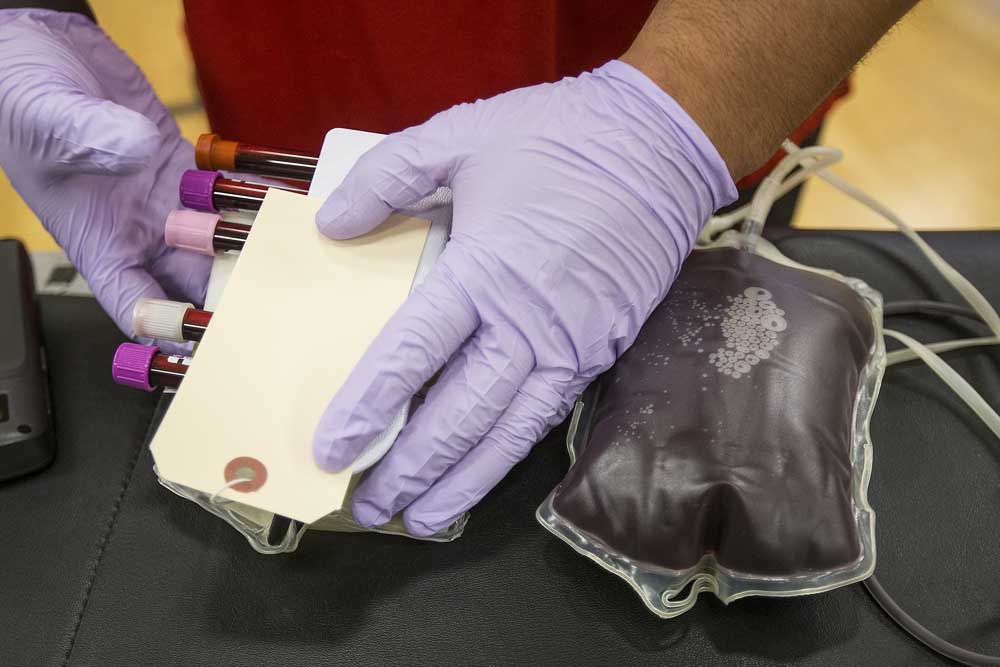Red Cross pivots after blood drive locations dry up
Published 5:00 am Friday, April 3, 2020

- Phlebotomist Nick Valdez works on cataloging a donor's blood samples and donation during a Red Cross blood drive in Bend on Thursday, April 2, 2020.
Central Oregon residents have responded to calls for blood donations and come out “in droves,” according to the regional Red Cross director, but in a pandemic, supply and demand can change fast.
“In three weeks we could be in a very different place than we are now,” said Nadine McCrindle, executive director of the Red Cross of Central and Eastern Oregon. “We’re in a good place right now, however, as the number of cases goes up and as time goes on, the need for blood products is going to continue.”
Two weeks ago, the regional Red Cross office began altering operations in response to the coronavirus. Its Bend-based Bloodmobile — which travels around Central and Eastern Oregon — was taken out of commission because social distancing was next to impossible inside the small mobile blood donation center. The pandemic also closed businesses and schools, which eliminated many blood drive locations.
And with the flurry of new rules to slow the spread of COVID-19, there was confusion in Deschutes County about what activities, including donating blood, were considered “essential.”
The organization issued a critical call for help and began meeting with officials with the city of Bend and Deschutes County, McCrindle said.
“And people have come out and really supported us,” she said.
In the days since, local officials have clarified that donating blood is an essential service allowed under Gov. Kate Brown’s “Stay Home, Stay Safe” order. Some, but not all, blood drive locations have been replaced — by churches, city halls, vacant buildings and a few hotels. And to comply with social distancing guidelines, the Red Cross now staggers appointment times, which has led it to schedule about half as many appointments as before, and thus, it’s receiving about half as much in donations.
The new spaces will feel familiar to regular donors, but with fewer people, and more space between the beds. The organization also spends more time disinfecting all surfaces and equipment.
The Red Cross allows people to donate blood once every 56 days. But whole blood, the kind most commonly donated, only has a shelf life of 46 days.
“That little 10-day gap means there’s always a need for more donations,” McCrindle said.
Wait times to donate are currently between two and three weeks out.
Though hospitals around the country have canceled elective surgeries, diminishing demand for blood, they continue to perform other kinds of procedures, including trauma surgery and treatments for cancer and blood diseases. Maternity wards still use blood for mothers and babies.
Once blood is drawn locally, it travels to the Red Cross facility in Portland, where it is processed before heading to medical facilities on the West Coast.
As it is a respiratory disease, COVID-19 cannot be transmitted through transfused blood.
To book an appointment to donate blood through the Red Cross, visit RedCrossBlood.org or call 1-800-733-2767.






